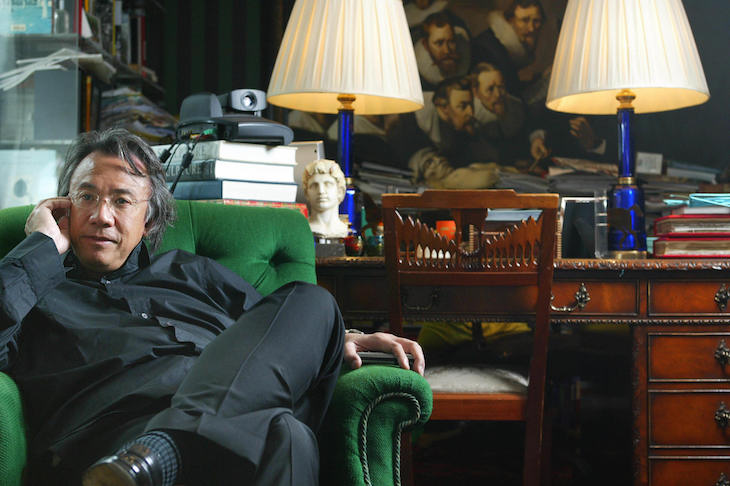Arguably it was Robert Peston’s breathless reporting of trouble at Northern Rock on the evening of 13 September 2007 that kicked off the crisis. The next morning, depositors were queuing round the block and the drama that would almost bring down the global banking system a year later had begun. Looking back after a decade, we can be grateful for the bailout interventions that shored it all up at the moment of cataclysm — but we can also observe the lingering and deep unfairnesses of the longer-term recovery.
Ultra-low interest rates that will not rise above inflation anytime soon mean blameless savers face continuing negative returns on cash deposits; yet the impact of quantitative easing on asset prices has made those who were rich in equities and real estate even richer than before. Bank shareholders have seen no rebound in their investments, while bank executives go on collecting fat packages. Low earners have been squeezed by ‘austerity’ while high earners have not. High-street bank customers are endlessly tied up in precautionary red tape while the banks themselves are revealed to have been up to their necks in scandal after scandal.
As to the men responsible, Adam Applegarth of Northern Rock is advising a US private equity firm, Dick Fuld of Lehmans still dabbles in corporate finance, Jimmy Cayne of Bear Stearns is playing bridge, Fred Goodwin of RBS is playing golf, and former US Fed chief Alan Greenspan, father of the easy-money era, is contemplating the ‘flaw’ he belatedly found in the free-market system. The lesson for next time is that there’s no such thing as natural economic justice.
‘Cash flow is God’
Sir David Tang, who died last week aged 63, was once The Spectator’s distributor in Hong Kong. His special achievement in his later entrepreneurial career was to turn his own stylish tastes in clothes, restaurants, clubs and cigars into a highly personal international brand, and to make it all look like great fun. In many ways he was comparable to Sir Richard Branson — except that Tang was a much more lovable personality, capable of filling a room with bonhomie without resorting to Bransonian stunts. But how good a businessman was he?
The key to running a corporate empire, Tang told me — over coffee at his house in Eaton Terrace, served by his butler Kevin — was cash flow. ‘Arnold Weinstock [MD of General Electric Company before its 1990s demise] taught me that: it’s the way he monitored all those hundreds of businesses in GEC… Too many people focus on profit and loss … they don’t look at cash flow until it’s too late. Jewish and Chinese businesspeople, we know that cash flow is God.’
But he admitted to difficulties at Shanghai Tang, his clothing chain, where a fraud by one of his managers led to Tang being bought out by his co-investor Richemont, the sharp-pencilled South African luxury goods group. And while we chatted, a call came in from his bank manager warning that he had busted his credit card limit: ‘a bad night at Aspinall’s’ was his twinkling explanation. So we might conclude that financial control was not, in truth, his greatest strength. But his ideas were bold, his repartee sparkled, and I’m forever in his debt as the owner of one of his signature garments, a dark green velvet Mandarin jacket, which even on me looks elegant for every occasion.
Time to march off
Keith Hellawell, the former police chief and ‘drugs tsar’, has never looked comfortable as chairman of Sports Direct, the retail group controlled by maverick tycoon Mike Ashley. If it turns out that Keith’s heading for retirement after this week’s annual meeting for lack of support from institutional share-holders, I’d say it’s a fair cop.
Famed for interrogating the Yorkshire Ripper and later exchanging Christmas cards with him, Hellawell once claimed: ‘As a policeman I’ve controlled people from serial killers to rapists, and Mike Ashley doesn’t need controlling.’ But he was clearly wrong about that, and despite some boardroom changes since last year’s furore over working conditions at the company’s Shirebrook warehouse, Sports Direct continues to look more like Ashley’s personal fiefdom than a conventional public company. Past his 75th birthday but still ramrod-straight, Hellawell would be best advised to march off the corporate platform while his dignity is intact.
The dark side
I once took the risk of describing PR as ‘the metier in which I believe Satan himself did his first internship’. Of course there are some individuals in that trade who deal honestly and pleasantly — usually former City journalists who, in their own words, have ‘gone over to the dark side’ in the hope of earning a better crust. But on the whole it’s a business of half-truth and heavy make-up, made more cynical in recent years by lucrative expansion into advising autocrats and oligarchs. So it’s hard to be surprised by the shaming of Bell Pottinger — whose racially provocative campaign on behalf of the controversial Gupta family in South Africa has been described by Francis Ingham, head of the PR and Communications Association from which Bell Pottinger has been expelled, as ‘the most blatant instance of unethical PR I’ve ever seen’.
I’m reminded of my own first internship, in the City way back in 1975, when I was placed under the tutelage of a young clerk called Piers Pottinger — later co-founder of the eponymous firm (with Margaret Thatcher’s adviser Tim Bell) and now chairman of its Singapore offshoot, far away from the current scandal. In those days Pottinger was a cheery prankster who filled his office days by constructing elaborate practical jokes against friends, colleagues and strangers encountered on crossed telephone lines. You might say he went on to make a profession of it — but that what’s allegedly been done in South Africa by the firm that bears his name is no joke at all.







Comments